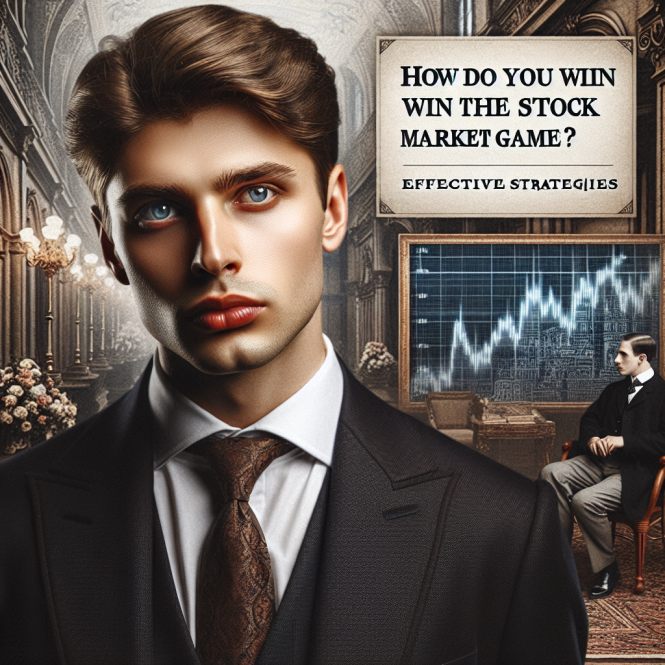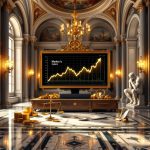The Trend is Your Friend Until The End It Bends: Be Ready
Sept 27, 2024
The Treacherous Terrain of the Stock Market
The stock market has long been a treacherous landscape, littered with the remnants of shattered dreams and broken fortunes. From the infamous South Sea Bubble in the 18th century to the recent Dot-com bubble of the late 90s, the investing public has consistently proven their susceptibility to herd mentality and short-sighted decision-making. It is a tragic cycle of greed and fear, with the masses repeatedly falling into the same traps that have ensnared their ancestors. As the ancient Roman philosopher Plato once warned, “The greatest penalty of evildoing is to grow into the likeness of bad men.” In the context of the stock market, the masses, driven by euphoria and the illusion of easy wealth, have indeed grown into the likeness of fools.
Machiavelli’s Warning: The Deception of the Masses
Niccolò Machiavelli, the master of political strategy, offers a poignant insight into the nature of the masses. In his writings, he observes, “Men are so simple and so much inclined to obey immediate needs that a deceiver will never lack victims for his deceptions.” With its alluring promise of quick riches, the stock market embodies this deception. It preys on the ignorant and uninformed, luring them into a web of impulsive decisions and short-term thinking. The masses, driven by their immediate needs and desires, fail to see the bigger picture, becoming victims of their greed and impatience.
Mark Twain’s Wit: The Arrogance of Certainty
Mark Twain, the great American humorist, provides a humorous yet profound perspective on the folly of the masses. He quips, “It ain’t what you don’t know that gets you into trouble. It’s what you know for sure that ain’t so.” In the context of the stock market, Twain’s words ring true. In their arrogance, the masses believe they possess the secrets to market success. They follow the herd, convinced that their knowledge of the latest trends and hot tips guarantees profitability. However, as history has repeatedly shown, what they “know for sure” is often based on illusions and misinformation.
The Illusion of Control: Navigating the Unknown
The stock market is where the illusion of control often clouds investors’ judgment. It presents an enticing mirage, tempting market participants to believe they can predict and dominate its movements. However, this illusion is a dangerous trap, leading to overconfidence and impulsive decision-making. Investors must recognize that the market is inherently unpredictable, and their influence over it is limited.
“The first step towards wisdom is recognizing that you know nothing,” advised Socrates. In the context of the stock market, wisdom begins with acknowledging the vast unknown that lies beyond our analytical tools and strategies. The market has a life of its own, influenced by countless factors, from global events to collective human psychology. Our models and indicators provide only a glimpse into the complex tapestry of market behaviour.
Standing Apart: The Contrarian Approach
The wise investor understands the folly of the masses and chooses to stand apart. They embrace the contrarian approach espoused by the likes of Charlie Munger, vice-chairman of Berkshire Hathaway. Munger, a legendary investor in his own right, once said, “The big money is not in the buying and selling but in the waiting.” The wise investor recognizes the genuine opportunity lies in patience and contrarian thinking. They wait patiently as the masses, driven by fear and greed, rush into and out of the market. This contrarian mindset allows them to buy when others are panic-selling and sell when others are caught up in euphoria.
Confucius and the Wisdom of Ignorance
The ancient Chinese philosopher Confucius offers a profound insight that resonates with the wise investor. He said, “Real knowledge is to know the extent of one’s ignorance.” In the unpredictable stock market context, the wise investor recognizes the limits of their knowledge and the inherent unpredictability of market movements. They embrace humility, understanding that true wisdom lies in acknowledging what they do not know and focusing on managing their emotions and behaviours. This mindset allows them to make more rational decisions, unclouded by the arrogance of certainty.
From Crisis to Opportunity: The Asian Currency Crisis
A prime example of turning disasters into opportunities can be found in the Asian currency crisis of the 1990s. As the economies of Southeast Asian countries crumbled, the masses, driven by fear, sold their assets at rock-bottom prices. However, the astute investor, guided by a long-term vision, recognized the potential for recovery and bought when others fled. This contrarian move allowed them to reap substantial rewards as the region’s economies rebounded in the subsequent years.
Warren Buffett and the Greed-Fear Pendulum
Warren Buffett, the “Oracle of Omaha” and one of the most successful investors of all time, offers timeless advice: “Be fearful when others are greedy, and greedy when others are fearful.” Buffett encourages investors to embrace market corrections and crashes. He understands that these are moments when quality assets become available at discounted prices. The cyclical market guarantees an upturn will follow every downturn, and wise investors will position themselves accordingly.
Education, Discipline, and the Path to Avoidance
So, how can the average investor avoid the traps that ensnare the masses? The answer lies in education and discipline. By studying the market’s history and understanding the psychology of investing, individuals can develop the mental fortitude necessary to resist impulsive decisions. Creating and adhering to a long-term investment plan protects against the emotional whims that often lead to costly mistakes. Diversification, as advocated by investors like Ray Dalio, is crucial in mitigating risks and protecting portfolios from unpredictable market shifts.
Patience: The Ultimate Virtue
Perhaps the most valuable asset in an investor’s toolkit is patience. The stock market is not a sprint but a marathon. Those who try to time the market or chase short-term trends often find themselves on the losing end. The wise investor understands that success comes to those who stay the course, even during turbulent times. Stoic philosopher Seneca encourages us to face our fears and embrace challenges, saying, “It is not because things are difficult that we do not dare; it is because we do not dare that things are difficult.”
Learning from Mistakes: A Cyclical Journey
The ignorant and uninformed masses are destined to repeat the mistakes of the past. They buy when the market is overvalued, driven by FOMO (Fear of Missing Out), and sell when prices have plummeted, driven by panic. This cycle perpetuates as they fail to learn from their errors, allowing emotions to dictate their decisions. On the other hand, the wise investor recognizes these patterns and adapts, turning the mistakes of the masses into opportunities.
Embracing Chaos: Smelling the Coffee
In conclusion, the stock market is chaotic, reflecting human nature’s hopes, fears, and follies. The wise investor understands this and embraces the chaos, recognizing that it presents opportunities for those who are prepared. They smell the coffee of reality, awakening themselves from the illusions that ensnare the masses. By studying market trends, learning from history, and managing their emotions, they position themselves to emerge victorious, leaving the ignorant to their financial ruin.
As the great investor George Soros said, “Markets are constantly in a state of uncertainty and flux, and money is made by discounting the obvious and betting on the unexpected.” The wise investor embraces this uncertainty, adapting to changes and bending the trend to their advantage. They understand that success lies not in following the crowd but in forging their path, guided by knowledge, patience, and a keen sense of market dynamics.
Profound Portraits: Capturing the Essence of Intellectualism













